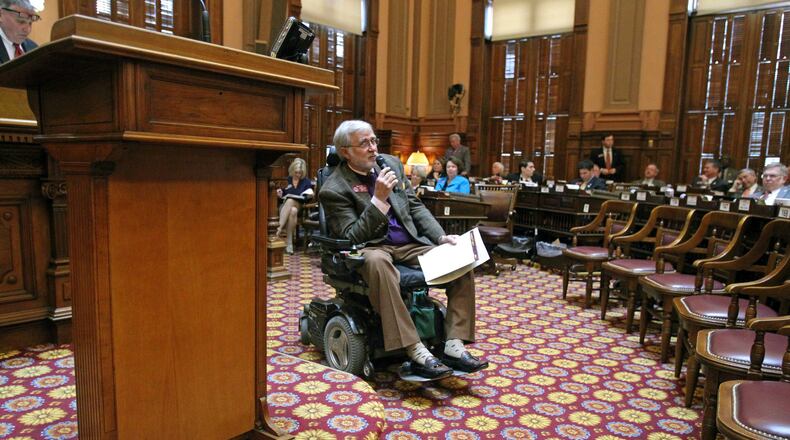State law prohibits former government officials from lobbying for a year after leaving office , but one recently retired state representative points out there is nothing prohibiting him from consulting on legislation.
In a letter written to casino industry lobbyists last month, former Rep. Rusty Kidd, I-Milledgeville, offered that he had been talking to lawmakers about gathering the votes needed to get a resolution legalizing casino gaming to voters for a statewide referendum.
"I cannot be a lobbyist for one year, but I can still work with corporations such as the gaming industry," he wrote in the Jan. 13 letter . "I have been in contact with several CEOs and talked with numerous key legislators about what it would take to get 120 votes in the House, 39 votes in the Senate and then ratified by the people."
In an interview, Kidd said he is a private citizen and free to express his opinions about legalizing casino gambling. According to state law, lobbying requires payment, which Kidd said he isn’t receiving.
Michael Jablonski, an Atlanta attorney and expert on government law, agrees with Kidd’s interpretation of the one-year lobbying ban.
“It does raise some questions that he is doing this very quickly after leaving the Legislature,” he said. “The purpose of the one-year, cooling-off period is to put some distance between a former legislator working on legislation and basically lobbying clients. But it is clearly not a violation.”
The path from lawmaker to lobbyist is a well-worn one in Georgia. What does it say about the political climate in the General Assembly? Read this week's AJC Watchdog column for more.
About the Author
Keep Reading
The Latest
Featured




